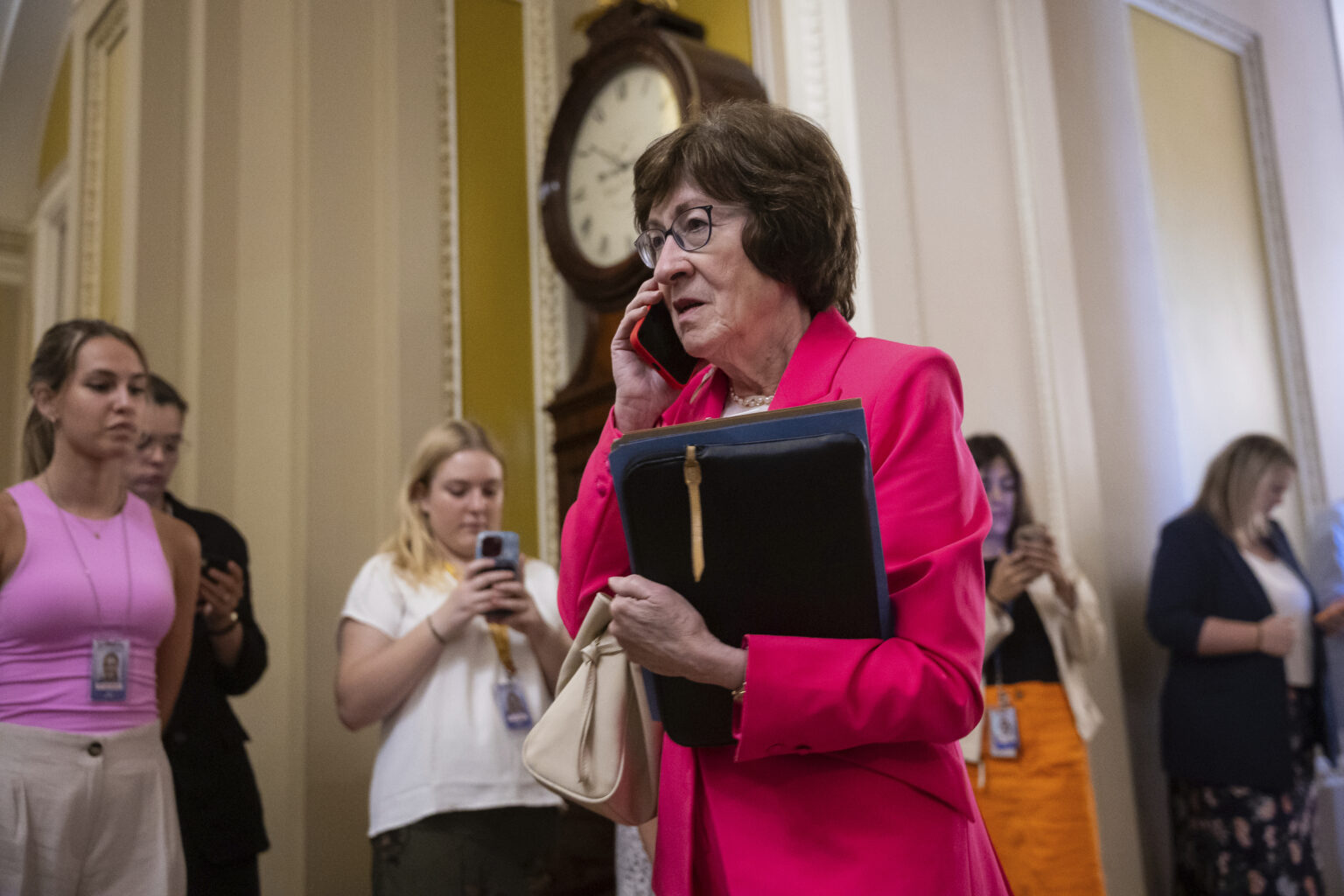Senate Republicans are eyeing changes to the White House’s $9.4 billion request to claw back funding for foreign aid and public broadcasting as leadership plans to bring it to the floor next week.
Majority Leader John Thune can only lose three GOP senators and still get the House-passed bill to the floor and ultimately across the finish line — and the South Dakota Republican is openly acknowledging that it’s TBD what the bill looks like when and if it gets there.
That’s because Republican senators are still talking about potential tweaks to slim down the cuts President Donald Trump is seeking for global health programs and AIDS prevention efforts around the world, as well as local radio stations and public TV programming valued back home.
Senate GOP leaders have little time to spare: By the end of the day on July 18, the request Trump sent to Capitol Hill last month will expire, meaning the administration will be forced to spend the money as lawmakers originally intended if Congress doesn’t act.
Senate Appropriations Chair Susan Collins of Maine, as well as South Dakota Sen. Mike Rounds, are among the Senate Republicans exploring the idea of amending the package to protect funding for public broadcasting, along with programs to stop the spread of AIDS.
“Whatever form it takes, we can’t lose these small-town radio stations across the country that are literally the only way to get out an emergency message,” Rounds told reporters Tuesday night.
Rounds noted, however, that White House budget director Russ Vought committed to working to protect funding for public radio stations if Congress clears the package clawing back a total of $1.1 billion from public broadcasting.
Alaska Republican Sens. Dan Sullivan and Lisa Murkowski have also signaled that they want changes to the bill. Sullivan said Tuesday that he’s still seeking votes on amendments to the package but didn’t detail what those might entail.
Collins already said weeks ago that she would seek changes to the package, but she also is declining to elaborate on how much funding she is aiming to protect.
“I have already made clear I don’t support the cuts to PEPFAR and child and maternal health,” Collins said in a brief interview Tuesday night.
Further complicating any attempt to make changes to a rescissions package in a narrowly divided Republican Senate, any amendments to the president’s request to nix funding would have to be narrowly tailored to comply with chamber rules. So senators are now seeking guidance from the Senate parliamentarian on what tweaks would be allowed.
“I’m trying now to determine what amendments I might be able to vote for,” Sen. Jerry Moran (R-Kansas) said in a brief interview Tuesday night. “So until I know the scope of the capabilities, I’d rather be in a position of keeping my options open.”
Senate Republicans are also banking on House Republicans swallowing any changes they make to the rescissions package — similar to their strategy on Trump’s megabill — after the lawmakers across the Capitol narrowly passed the president’s clawbacks request last month without changes.
“We’ll see where it goes,” Thune told reporters Tuesday, adding that while he hasn’t done a hard vote count yet he is assuming Republicans will at least be able to get it onto the Senate floor.
Asked if he was worried about Collins or other moderates voting against the bill, Thune demurred, suggesting those conversations were still to come.
“We’ll have a lot of conversations about it, and we’ll get a better sense of where our members are,” Thune said.
Some Republican senators who generally back the package also support attempts to amend it.
“Right now, I’m lean yes,” Sen. Thom Tillis said Tuesday night about passage of the package.
But the retiring North Carolina senator said some of his Republican colleagues have also made persuasive arguments in favor of protecting money for PEPFAR, the global AIDS reduction campaign Trump is seeking to slash by $400 million.
“I’m open to it, if it makes the rescission better,” Tillis said of amending the package.
If Congress rejects the package or doesn’t clear it through both chambers by the July 18 deadline, Trump would be forced to spend the money and prevented from requesting the same cuts again.
But if the package passes, the White House will finally be able to send back to the Treasury a small slice of the billions of dollars in proposed funding cuts made in recent months. That includes reductions Elon Musk dictated as head of the Department of Government Efficiency before leaving his Trump administration role.
White House allies are also predicting a political blowup from Trump if the Senate falls short. Sen. John Kennedy (R-La.) said that if the bill fails, the White House “will go nuts” and that it would be an “embarrassment to the president.”
“I think if the Republicans in the United States Senate do not pass the rescission package, after all the rhetoric about reducing spending, then they should hide their head in the bag, and I think the White House will provide the bag,” Kennedy added.
In 2018, Senate Republicans, who had a slightly narrower majority, rejected an effort during the first Trump administration to revoke congressionally approved spending. Trump officials say they tailored their latest request to make it as politically palatable as possible, but they’ve also flirted with leapfrogging Congress and trying to rescind funding on their own if the Senate falls short.
Cassandra Dumay, Mia McCarthy and Calen Razor contributed to this report.
Read the full article here


